第45章
I need not mention the difficulty of detecting a falsehood in any private or even public history, at the place, where it is said to happen; much more when the scene is removed to ever so small a distance. Even a court of judicature, with all the authority, accuracy, and judgement, which they can employ, find themselves often at a loss to distinguish between truth and falsehood in the most recent actions. But the matter never comes to any issue, if trusted to the common method of altercations and debate and flying rumours; especially when men's passions have taken part on either side.
In the infancy of new religions, the wise and learned commonly esteem the matter too inconsiderable to deserve their attention or regard. And when afterwards they would willingly detect the cheat in order to undeceive the deluded multitude, the season is now past, and the records and witnesses, which might clear up the matter, have perished beyond recovery.
No means of detection remain, but those which must be drawn from the very testimony itself of the reporters: And these, though always sufficient with the judicious and knowing, are commonly too fine to fall under the comprehension of the vulgar.
Upon the whole, then, it appears, that no testimony for any kind of miracle has ever amounted to a probability, much less to a proof; and that, even supposing it amounted to a proof, it would be opposed by another proof; derived from the very nature of the fact, which it would endeavour to establish. It is experience only, which gives authority to human testimony; and it is the same experience, which assures us of the laws of nature. When, therefore, these two kinds of experience are contrary, we have nothing to do but subtract the one from the other, and embrace an opinion, either on one side or the other, with that assurance which arises from the remainder. But according to the principle here explained, this subtraction, with regard to all popular religions, amounts to an entire annihilation; and therefore we may establish it as a maxim, that no human testimony can have such force as to prove a miracle, and make it a just foundation for any such system of religion.
1
say, that a miracle can never be proved, so as to be the foundation of a system of religion. For I own, that otherwise, there may possibly be miracles, or violations of the usual course of nature, of such a kind as to admit of proof from human testimony; though, perhaps, it will be impossible to find any such in all the records of history.
Thus, suppose, all authors, in all languages, agree, that, from the first of J/ANUARY, 1600, there was a total darkness over the whole earth for eight days: Suppose that the tradition of this extraordinary event is still strong and lively among the people: That all travellers, who return from foreign countries, bring us accounts of the same tradition, without the least variation or contradiction: It is evident, that our present philosophers, instead of doubting the fact, ought to receive it as certain, and ought to search for the causes whence it might be derived. The decay, corruption, and dissolution of nature, is an event rendered probable by so many analogies, that any phenomenon, which seems to have a tendency towards that catastrophe, comes within the reach of human testimony, if that testimony be very extensive and uniform.
But suppose, that all the historians who treat of E/NGLAND, should agree, that, on the first of J/ANUARY, 1600, Queen E/LIZABETH died; that both before and after her death she was seen by her physicians and the whole court, as is usual with persons of her rank; that her successor was acknowledged and proclaimed by the parliament; and that, after being interred a month, she again appeared, resumed the throne, and governed E/NGLAND for three years: I must confess that I should be surprised at the concurrence of so many odd circumstances, but should not have the least inclination to believe so miraculous an event. I should not doubt of her pretended death, and of those other public circumstances that followed it: I should only assert it to have been pretended, and that it neither was, nor possibly could be real. You would in vain object to me the difficulty, and almost impossibility of deceiving the world in an affair of such consequence; the wisdom and solid judgment of that renowned queen; with the little or no advantage which she could reap from so poor an artifice: All this might astonish me; but I would still reply, that the knavery and folly of men are such common phenomena, that Ishould rather believe the most extraordinary events to arise from their concurrence, than admit of so signal a violation of the laws of nature.